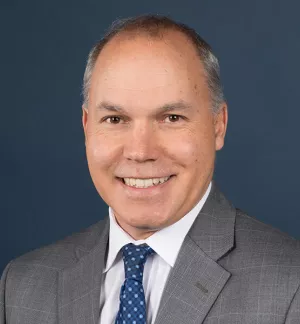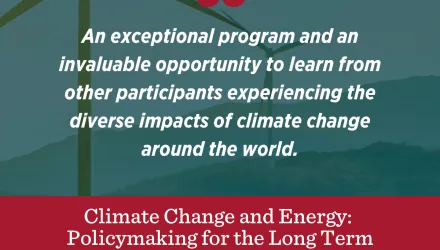The Debate
Note
How Can the U.S. Lead in Paris to Achieve a Climate Agreement We Can Live With?
In a few weeks, the 21st Conference of the Parties of the UN Framework Convention on Climate Change will convene in Paris to hammer out for the first time an accord that will have binding targets for nearly all nations, industrialized and developing alike.
The United States is a party to the climate convention, but it famously flamed out on the Kyoto Protocol, an enforceable mandate for rich nations alone, which Al Gore signed but the Senate failed to approve under those grounds. Even the signatory status was withdrawn by the Bush II administration, leaving the United States, then the biggest emitter, with no commitments.
Now, the United States has a chance to lead again. Many of its concerns have already been resolved in the negotiating framework, particularly the commitment of developing countries.
We polled some of the leading thinkers and activists involved in the climate change negotiations, asking them what the United States needs to do to realize an agreement that we can live with — one that protects the environment and also wins favor in the Senate and among the American public.
"Need Transparency and Review Mechanisms"
At the 2009 climate talks, the leaders of every major economy and nations representing each of the UN blocs personally negotiated the text of the Copenhagen Accord. This threepage political agreement established several important precedents. The accord set a long-term goal to limit warming to no more than 2 degrees Celsius; included nationally determined mitigation pledges from developed and developing countries representing more than 85 percent of global greenhouse gas emissions; quantified international climate finance goals; and promoted the transparency of nations’ climate change programs. Building on the foundation laid in Copenhagen — in the Paris climate talks and beyond — can drive the global effort necessary to combat the risks posed by climate change.
A defining policy innovation in the 2009 agreement is the focus on pledge and review of emission mitigation commitments. Each country pledges a specific set of emission mitigation goals, actions, and/or policies, which is subject to review by other countries. The current climate talks have carried the pledging concept forward with so-called Intended Nationally Determined Contributions. Through about 100 INDCs pledged to date, many developed and developing countries have signaled the seriousness with which they have considered, evaluated, and designed their domestic climate programs. This pledging approach could deliver on the leaders' goal to limit warming to 20C, however, only if there is a robust transparency and review mechanism.
Transparency and publicity of a country's pledge can signal a nation’s seriousness and enhance the credibility of its commitment. The review of ex post outcomes can demonstrate whether a country undertook a good-faith effort to deliver on its pledged commitment and build trust among those participating in an agreement. Designing the institutional capacity to collect, analyze, and disseminate information about countries' pledges can facilitate positive reciprocal pledging in subsequent negotiations. Political leaders who push for their nations to take on more ambitious climate change risk-reduction policies would benefit from this transparency: it would highlight their leadership on the issue. Such policy surveillance also increases the costs to political leaders of failing to deliver on commitments, opening them up to domestic stakeholder pressure and peer pressure from other leaders.
On the road to Paris, political leaders are pledging to take a step forward in combating climate change; the review of these pledges will allow them to look among their peers to see if they are all stepping forward together. A well-designed transparency regime can provide the confidence that they are moving forward in tandem, which can enable coordination on more ambitious future efforts to tackle climate change.
Transparency, however, has clearly been inadequate under the UN climate treaty. By the time of the Copenhagen conference, the most recent emission inventory that China had submitted to the UN was for fifteen years before — and neither its reported emissions nor the description of its emission mitigation programs were subject to any review. In an effort to improve the transparency of mitigation efforts, enable analysis of these efforts, and promote understanding by peers, developed and developing countries agreed to submit reports on their emission mitigation programs every two years starting in 2014. While every developed country (except Turkey) has submitted its first report, only 10 developing countries met their 2014 deadline, and neither China nor India have submitted a report as of September 2015.
While developing countries participate in more intensive reviews under the International Monetary Fund and the World Trade Organization, many have been resistant to calls for improving the robustness of climate policy transparency and review. The United States can work with its developed and developing country allies to make the case for meaningful review of ex ante pledges and ex post outcomes in the Paris framework. Given the interest in climate finance by many developing countries, the United States and other donors could condition financial transfers on developing country participation in the transparency mechanism. To leverage developing country peer pressure, international climate finance could also be conditioned on a minimum overall participation rate, which would encourage the good actors to pressure laggards to participate in the reviews.
Building robust transparency and review institutions in the Paris framework can drive a positive dynamic in which serious mitigation efforts today will lead to more ambitious mitigation efforts tomorrow among all countries of the world. In doing so, transparency can serve as a catalyst for the policy actions, the investment in innovative technologies, and the changes in behavior necessary to address the risks posed by global climate change.
The full text of The Debate is available for download below
Joseph E. Aldy is an associate professor of public policy at the Harvard Kennedy School and a former special assistant to the president for energy and the environment in the Obama administration.
Aldy, Joseph. “Need Transparency and Review Mechanisms.” The Environmental Forum, November/December 2015





